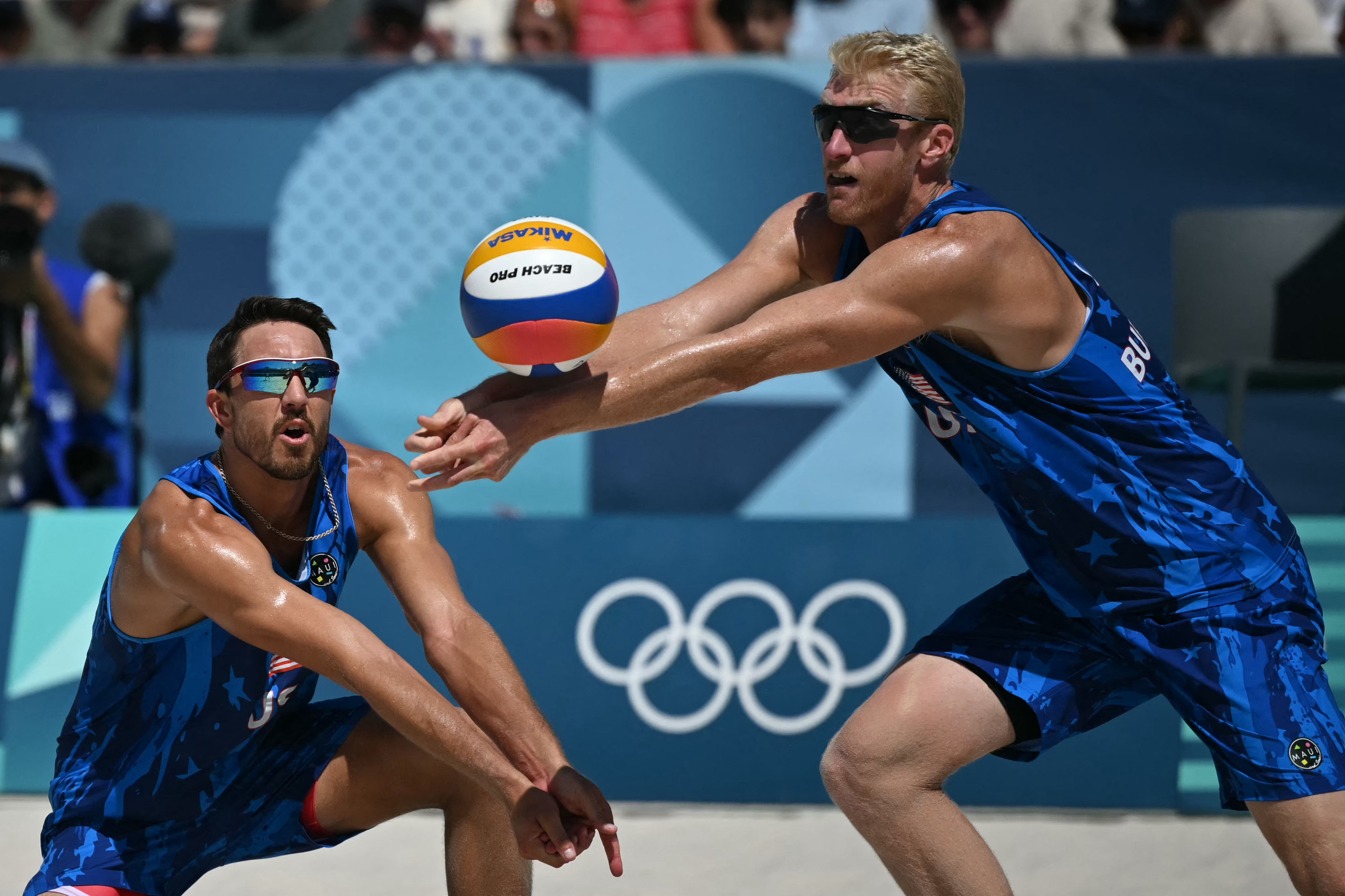
For the first time 24 years, a U.S. women’s team won’t make the Olympic beach volleyball podium.
The eliminations started on Monday, when LSU products Taryn Kloth/Kristen Nuss fell to Canada’s Brandie Wilkerson/Melissa Humana-Paredes in the Round of 16.
And then in the quarterfinals, gold medal hopefuls Kelly Cheng/Sara Hughes were upset in straight sets by Nina Brunner/Tanja Huberli of Switzerland.
The sense of disappointment from both American pairs was evident, as they represented the top teams from a women’s beach volleyball powerhouse that has the most gold medals of all time.
Get top local stories in Connecticut delivered to you every morning. Sign up for NBC Connecticut's News Headlines newsletter.
“[We’re] definitely a little heartbroken,” Nuss said after the United States' loss to Canada. “We came here wanting to bring home gold back to the United States and that's been our goal for the past four years.”
Beach volleyball
Women’s beach volleyball now enters unprecedented territory heading into the 2028 Games. It will be the first time since 2004 the Americans won’t be defending a medal of any color. The history of the sport in the United States is well-documented — from the days of April Ross, Misty May-Treanor and Kerri Walsh Jennings — and the expectations for any U.S. team will always be high.
SEE MORE: How to watch beach volleyball at the Paris Olympics: TV and stream schedule
Now coming off a disappointing year in which both American teams were knocked out before the semifinals, all eyes are on the Los Angeles Games.
California is undoubtedly the beach volleyball capital of the United States, and a hometown advantage could greatly benefit the Americans. But the U.S. game isn’t just limited to California now.
Beach volleyball’s growth within the college ranks has only accelerated over the years, with the number of schools and athletes competing nearly tripling from 2012 to 2015, according to the NCAA.
By 2023, the NCAA recorded a record 91 beach volleyball programs and 1,615 athletes.
The growth of the game is promising for nation that failed to win a gold medal (women’s or men’s) for the first time in Olympic history in 2024.
With an abundance of resources, the U.S. must rely on the developing college ranks as a training ground to not only compete with the world’s best, but grow the game across the country and regain elite status.
“Brazil has been so good for so long and I think the U.S. has such a good opportunity to be good for a very long time because of the NCAA,” Cheng said. “There is so much depth in the sport. Look at Australia, Japan had a great run. There is beach volleyball all around the world.”
The expansion of the American game has already moved outside of the west coast, with Kloth/Nuss becoming the first U.S. Olympic beach volleyball team that doesn’t primarily train in California (Baton Rouge, Louisiana). As beach volleyball continues to evolve in the country, the college ranks provide an avenue for the U.S. to get back on its feet.
“She's from South Dakota, I'm from Louisiana. Definitely not a lot of beaches or a hot bed for the sport,” Nuss said. “We really wanted to go out and grow the sport and hopefully get other people all over the country, showing them that you don't have to do it on the coast like California or Florida.”
For beach volleyball players — either experienced veterans or young players on the rise — Los Angeles presents an opportunity for redemption.
“I’ve loved to see the legacy of the United States in volleyball and would've loved to continue that legacy but, you know, it wasn't our time,” Cheng said. “But LA is calling.”




